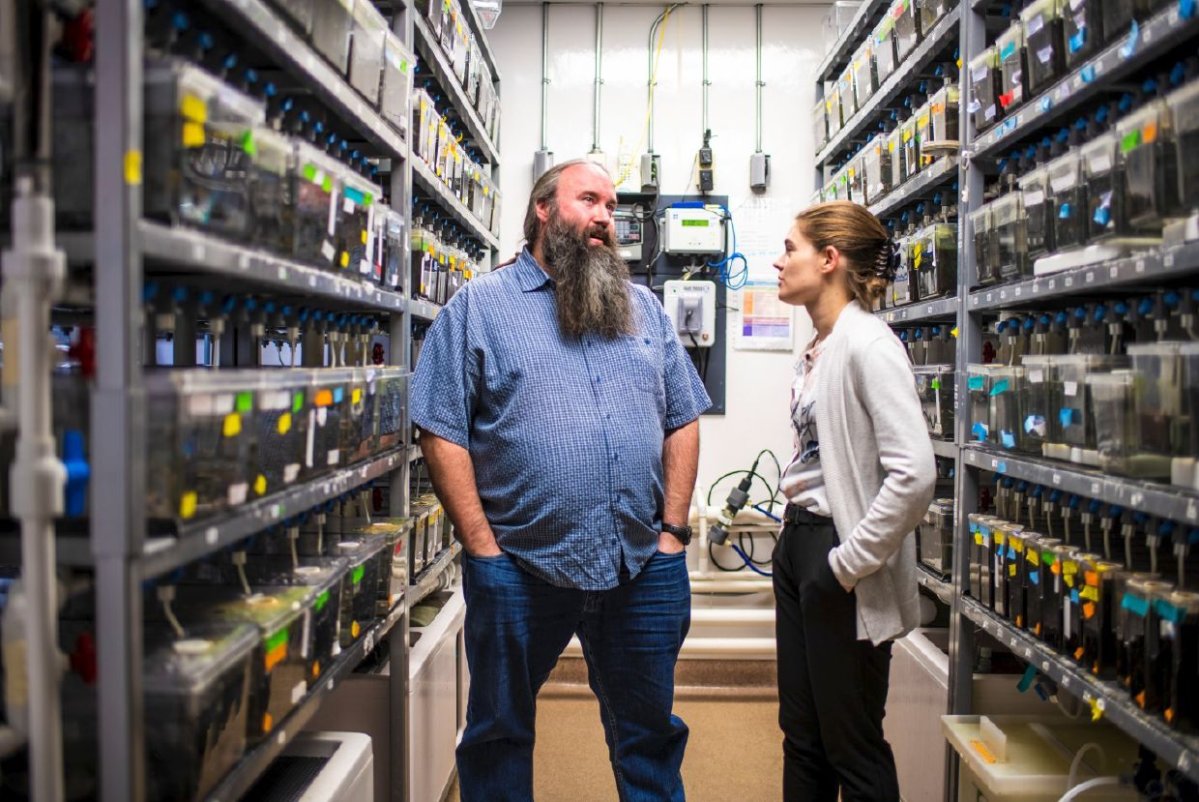University of Alberta biologists believe a new application of the drug telbivudine could significantly slow the progression of Amyotrophic Lateral Sclerosis (ALS).

The researchers said the drug targets a protein that misfolds and does not function correctly in patients with ALS, the degenerative disease also known as Lou Gehrig’s disease.
“SOD1 is a protein that is known to misfold and misbehave in most cases of patients with ALS,” Biological Sciences associate professor Ted Allison said. “We showed that telbivudine can greatly reduce the toxic properties of SOD1, including improving the health of the subject’s motor neurons and improving movement.”
READ MORE: ‘People don’t live very long after being diagnosed’
The research team used computer simulations to identify drugs with the potential for targeting the SOD1 protein. From the shortlist, the scientists identified and tested the most likely candidates — including telbivudine — using animal models.
“ALS is not well-understood,” lead author Michele DuVal said.

Get weekly health news
“We don’t yet know exactly what goes wrong first in the motor neurons or how the misbehaving SOD1 causes toxicity. Because there is still much to learn about the disease, the ALS research community focuses on both understanding ALS and on developing promising therapies.”
READ MORE: ALS drug approved by Health Canada could slow down progression of fatal disease
The researchers said the discovery of telbivudine as a potential treatment is particularly exciting because the drug is already in use for treating patients with hepatitis.
“It is already proven safe to use in patients and it has very good potential for repurposing to use in a new clinical setting against ALS,” Allison said.
The research was made possible through donations to the University of Alberta’s Faculty of Science, and was performed in collaboration with the Kovalenk Lab at the National Research Council.
Watch: Join Global’s Laura Casella and neurologist Dr. Rami Massie as they talk about a ground-breaking study and possible treatment for ALS sufferers. (Oct. 22, 2018)



Comments